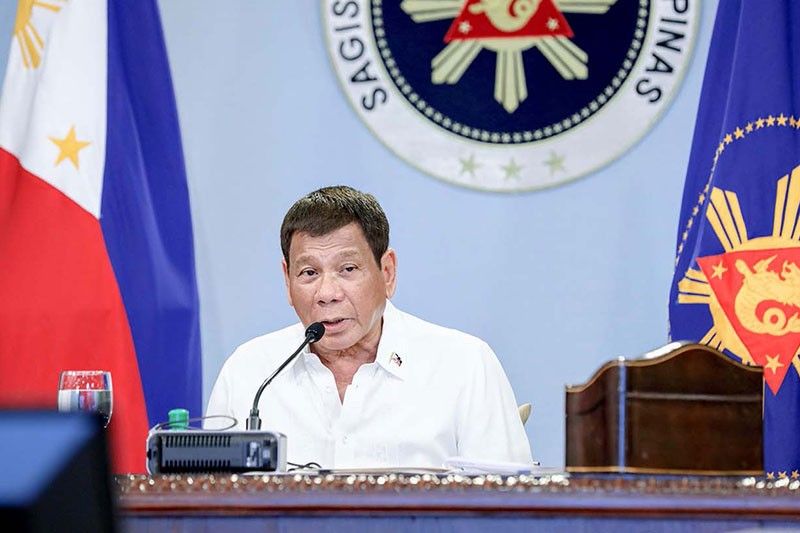Duterte: Not all 'drug war' records can be released due to national security issues

MANILA, Philippines — The government cannot release all records about the controversial war on drugs because of "national security," President Rodrigo Duterte said, as he urged human rights groups to be careful in assessing deaths tied to the campaign since narcotics syndicates can also orchestrate them.
Duterte said human rights advocates can check police records or join law enforcement operations from a "healthy distance" but some information like the sources of information would remain confidential.
"Now this is really a lesson for the human rights... I suggest that you go to the police and look into the records of these deaths... We cannot give everything not because we are hiding some facts that are known to us, unknown to you. It's a national security issue," the president said during a meeting of the government's pandemic task force last Monday.
"We have records (of) those who have died but who have derogatory records in our files, it contains references about persons and what they do, we cannot divulge it to anybody but only to the military and to the police," he added.
More than 5,000 drug suspects have been killed since Duterte launched a crackdown on narcotics, one of the campaign promises that enabled him to win by landslide in 2016. Officials have insisted that the government does not tolerate extrajudicial killings and other human rights violations and that most of the slain suspects had violently resisted arrest.
Duterte, the commander-in-chief of government forces, claimed he does not ask law enforcers about confidential information.
"I am just result-oriented... As a matter of fact, I told the police or the military who perform their duties and had to kill their adversaries, especially those related to drugs and even the NPA (New People's Army). We cannot give everything. You can go into the... query as to how the battle was fought, how the gunfight started," the president said.
"But when you talked about what prompted the police and the military to go into this kind of operation based on their reports and collated dossiers, you cannot touch on that... Even if you ask around, I never asked about those things. It’s because I know that it’s just confidential. And if they do not present it to me, I do not ask for it," he added.
Duterte said government forces inform him about "big personalities" but their location and the manner by which they would be arrested are "none of my business really as President."
Duterte made the remark after the Philippine National Police (PNP) allowed the Department of Justice (DOJ) to access 61 anti-drug campaign cases, a move that has drawn praises from various sectors, including the Commission on Human Rights.
Presidential spokesman Harry Roque, however, claimed that the president was not referring to the information-sharing between the two agencies.
"The information on ongoing police investigation is a traditional exception to the right to information. It does not cover the sharing of information being done by the PNP and the DOJ on the possibility that some police personnel are liable for the killings. But the ongoing police investigations are never subject to freedom of information," Roque said at a press briefing yesterday.
"The president has said that he would back police personnel who are responding to their call of duty but if they violated the law, they’re on their own. That's also the instruction when it comes to information," he added.
"Of course, sensitive information involving live investigations cannot be disclosed. But everything else that can help promote accountability and improve the professionalism of the police are not covered."
Duterte said human rights advocates should be cautious in examining the deaths tied to the narcotics crackdown, noting that many police officers have also died during anti-drug raids. He also claimed that some of the deaths were perpetrated by drug syndicates who want to silence potential informants.
"So be careful in your — especially the (Commission on) Human Rights — be careful in your evaluation and assessment because the government is not the only one capable of killing. Even the NPA and drug lords know how to kill. There lies the problem," the president said.
"Some people are killed by drug lords so they won't be included in the narrative. They do it especially when the government already smells something and if they think this person will squeal, the drug lords would kill them and then we would be accused of doing it," he added.
Duterte claimed that drug addicts would be killed if they clash with soldiers and policemen who underwent training.
"They will surely die. And if you claim that they were deliberately killed, no. They really fought back," he added.
- Latest
- Trending






























